Write Us
We are just a call away
[ LET’S TALK AI ]
X
Discover AI-
Powered Solutions
Get ready to explore cutting-edge AI technologies that can transform your workflow!

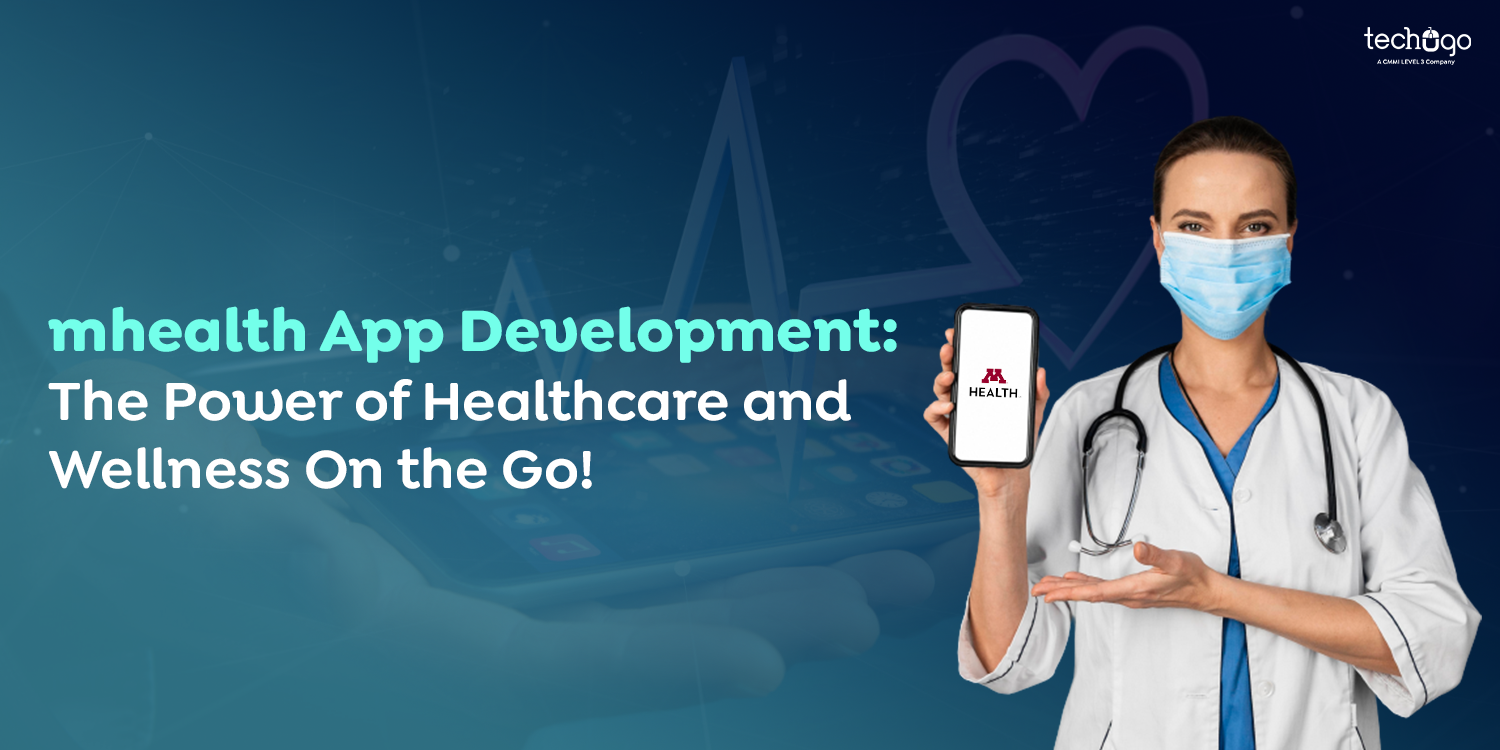
No wonder, mHealth apps represent a perfect fusion of the healthcare sector and next-generation technologies. Nowadays, who doesn’t love using mobile phones for communication and entertainment. Thus, it is why a number of businesses decided to grab the opportunity and shift their operations online for easy access and higher customer base.
Undoubtedly, mobile healthcare apps have raised the standards of the industry, and the market is continuously evolving.
In this blog, we’ll dive deep into the dynamic world of mHealth app development, where innovation meets compassion and convenience. We’ll uncover how these mobile applications are not just transforming the way we manage our health but also opening up new possibilities for healthcare professionals and researchers.
So, whether you’re a tech enthusiast eager to learn about cutting-edge developments or someone simply looking to take charge of their health, join us on this journey through the powerful landscape of mHealth app development.
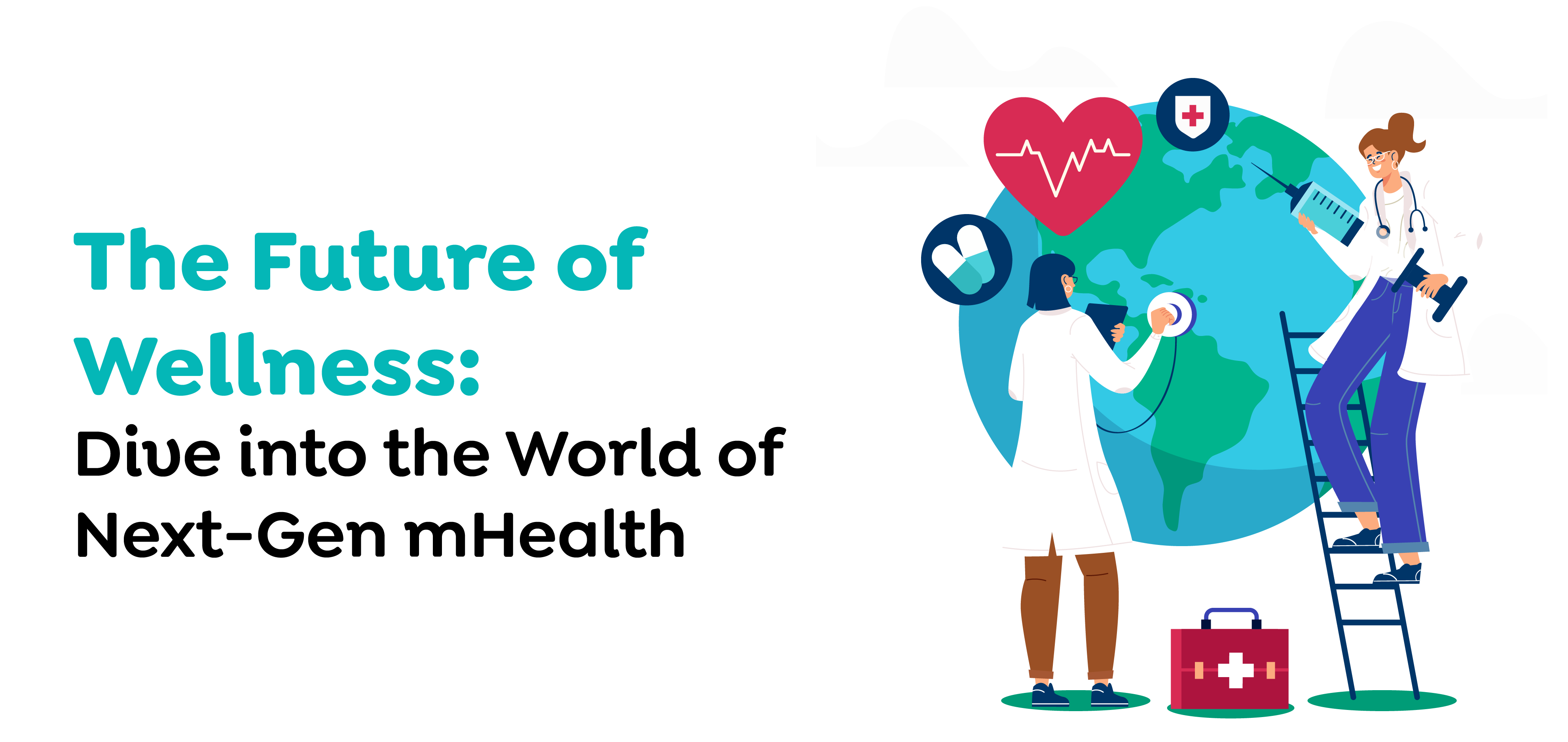
In a world where technology permeates every facet of our lives, it comes as no surprise that it has also transformed the healthcare landscape.
One of the key facets of mHealth is the diverse range of applications it offers, each tailored to address specific health and wellness needs. Let’s explore some of the fascinating types of mHealth apps that have emerged in recent years.
These apps are designed to help users maintain a healthy lifestyle. From tracking your daily steps and monitoring your heart rate to guiding you through yoga sessions and personalized workout routines, wellness and fitness apps are your allies in achieving your health goals.
Also Read : How to Develop an App like MyFitnesspal?
Managing chronic illnesses can be challenging, but these apps make it easier. They provide tools for tracking symptoms, medications, and appointments, allowing patients and their healthcare providers to make informed decisions together.
Telemedicine apps have gained significant prominence, especially in recent times. They enable users to consult with healthcare professionals remotely, bridging geographical gaps and improving access to medical expertise.
For those on medication regimens, medication reminder apps can be a lifesaver. They send timely alerts, ensuring you never miss a dose and promoting medication adherence for better health outcomes.
Mental health apps provide valuable resources for managing stress, anxiety, and depression. They offer meditation guides, mood tracking, and even access to licensed therapists, promoting mental well-being.
These apps help users assess their symptoms and provide initial guidance on potential health issues. While not a substitute for professional medical advice, they can offer valuable insights and peace of mind.
Health record apps allow users to maintain a digital record of their medical history, lab results, and prescriptions, making it easier to share vital information with healthcare providers when needed.
In emergencies, every second counts. Emergency and first aid apps provide step-by-step instructions for handling common medical situations, making them indispensable tools in critical moments.
How intrigued are you by the idea of mHealth app development? If we are on the same page, get in touch with Techugo- a top-notch app development company for further insights.
Also Read : Everything You Ever Wanted To Know About Mhealth App; Cost, Technology, And Features
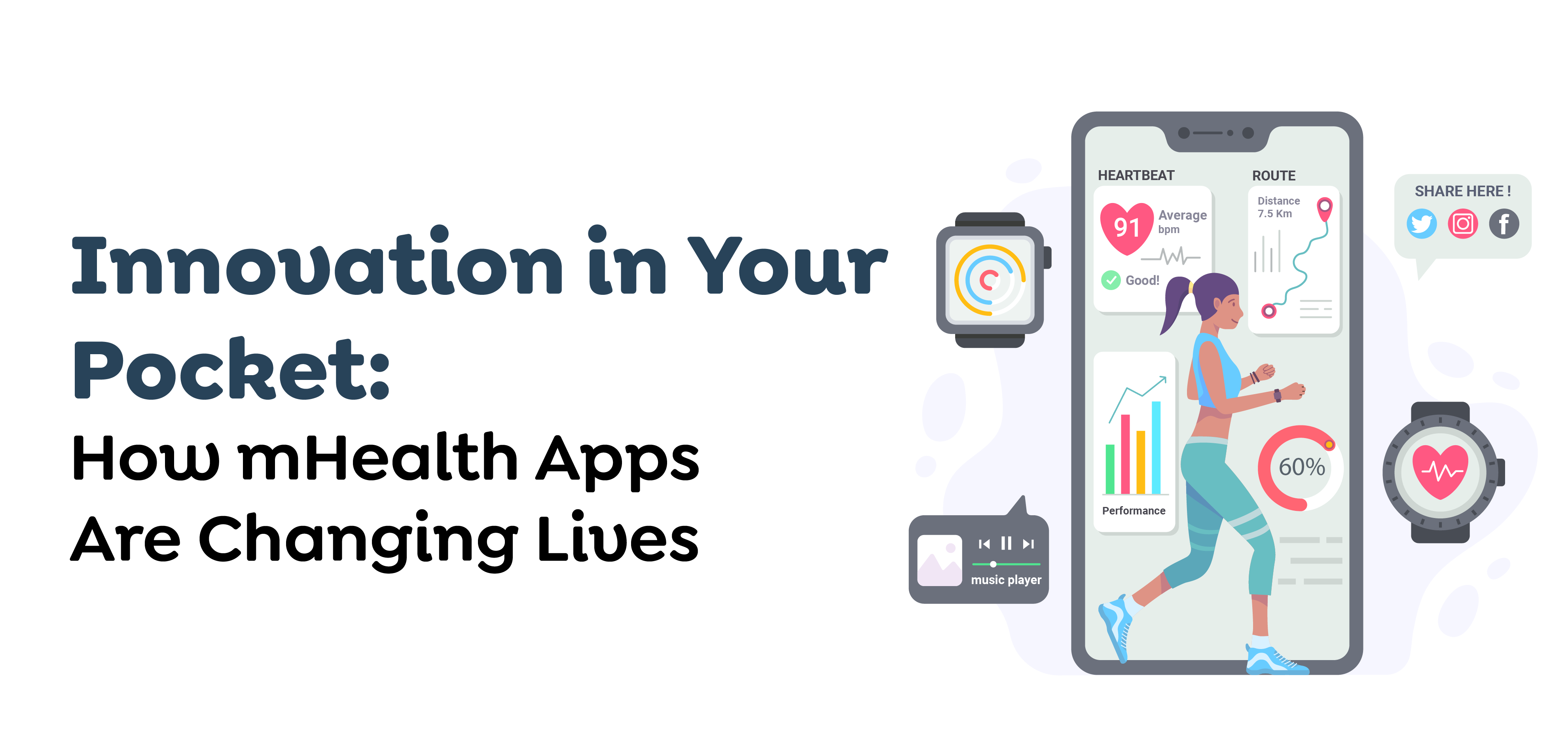
Mobile Health apps have emerged as game-changers in the healthcare industry, offering a multitude of benefits that are transforming the way we approach our well-being.
mHealth apps break down geographical barriers, allowing individuals to access healthcare resources and services from anywhere at any time. This level of convenience is especially crucial for those with limited mobility or living in remote areas.
These apps provide users with personalized health insights and recommendations based on their unique data. From tailored fitness plans to medication reminders, mHealth apps empower individuals to take control of their health.
Also Read : Explore the Top Trends in mHealth App Development
By providing easy access to medical records, test results, and health information, mHealth apps encourage active participation in one’s healthcare journey. Patients become better informed, engaged, and proactive in their interactions with healthcare providers.
For individuals with complex health needs, mHealth apps offer a centralized platform to coordinate care among multiple healthcare providers. This improves communication, reduces errors, and enhances the overall quality of care.
Continuous health monitoring through wearable technology and sensors integrated with mHealth apps enables early detection of health issues, facilitating timely interventions and reducing the risk of complications.
By preventing unnecessary hospitalizations and facilitating remote consultations, mHealth apps can reduce healthcare costs for both individuals and healthcare systems.
Creating a successful mHealth app requires careful planning and a solid architectural foundation. Let’s delve into the key components that make up the structure of these transformative applications.
Intuitive and user-friendly interfaces are essential for mHealth apps. They ensure that users can navigate the app effortlessly, access information quickly, and engage with features without confusion.
Protecting sensitive health data is paramount. mHealth apps must incorporate robust security measures to safeguard patient information, including encryption, authentication, and secure cloud storage.
Many mHealth apps connect with wearable devices and sensors to collect real-time health data. These integrations require a seamless connection that enhances the app’s functionality.
To provide meaningful insights, mHealth apps often incorporate data analytics engines. These engines process the collected data to offer personalized recommendations and health trends.
Apps that facilitate remote consultations must have reliable communication features, including video calls, chat, and secure data transmission for virtual appointments.
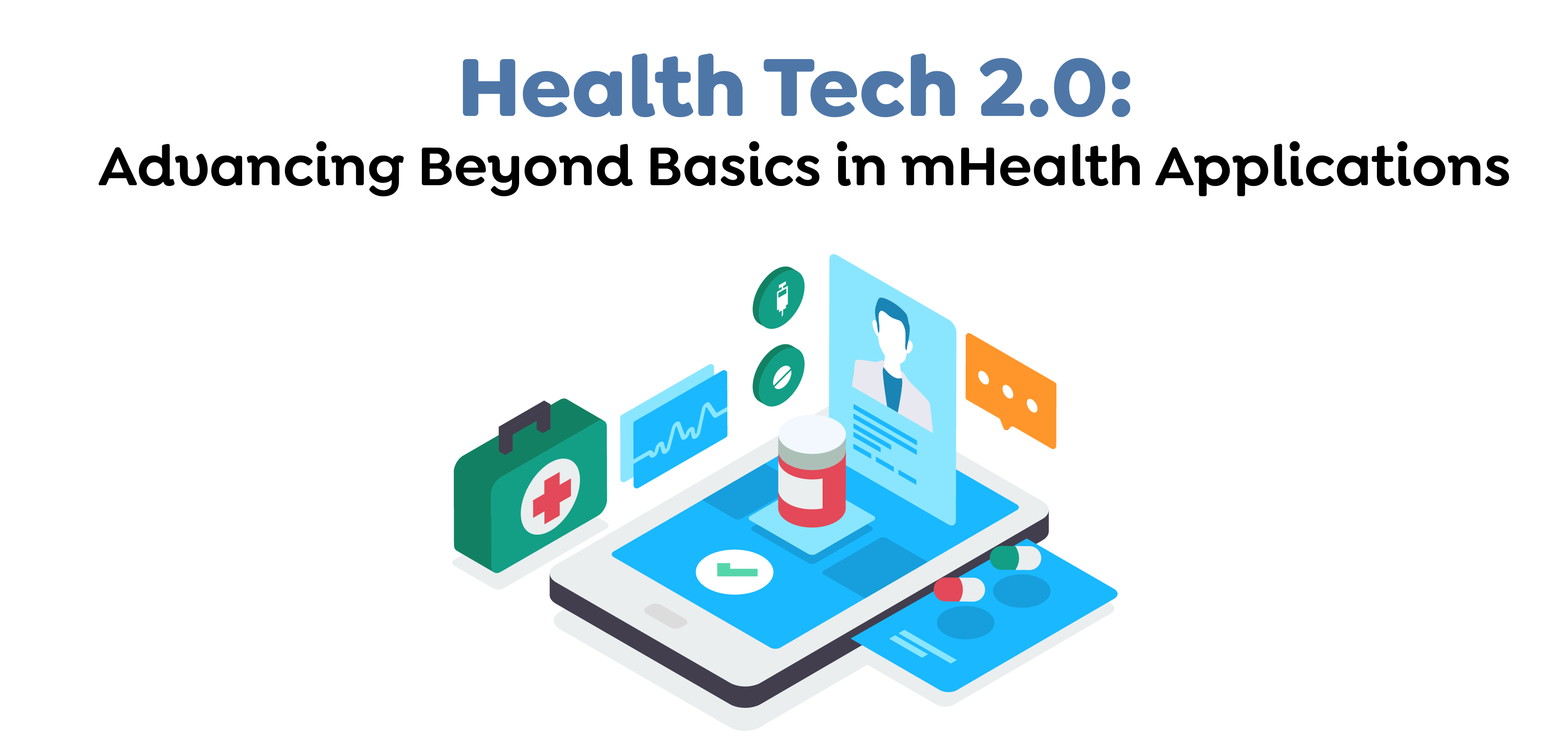
The world of mHealth is continually evolving, driven by technological advancements and changing healthcare needs. Here are some of the latest trends shaping the landscape of mHealth apps.
Artificial intelligence and machine learning algorithms are being used to assist healthcare professionals in diagnosing diseases, predicting health outcomes, and personalizing treatment plans.
Blockchain technology is gaining traction in mHealth for its potential to enhance data security, streamline health data sharing, and maintain the integrity of electronic health records.
The demand for remote patient monitoring is on the rise, with more apps focusing on tracking chronic conditions, post-surgery recovery, and overall health trends.
The importance of mental health and wellness is being recognized, leading to an increase in mHealth apps dedicated to providing support, resources, and therapy options for mental well-being.
Virtual Reality and Augmented Reality are being used to create immersive and therapeutic experiences, from pain management to medical training and rehabilitation.
In this ever-evolving landscape, mHealth apps continue to drive innovation, making healthcare more accessible, efficient, and personalized. Stay tuned to discover how these trends are shaping the future of healthcare on your mobile device.
Also Read : Virtual Reality: The Artist Itself in the World of Art!
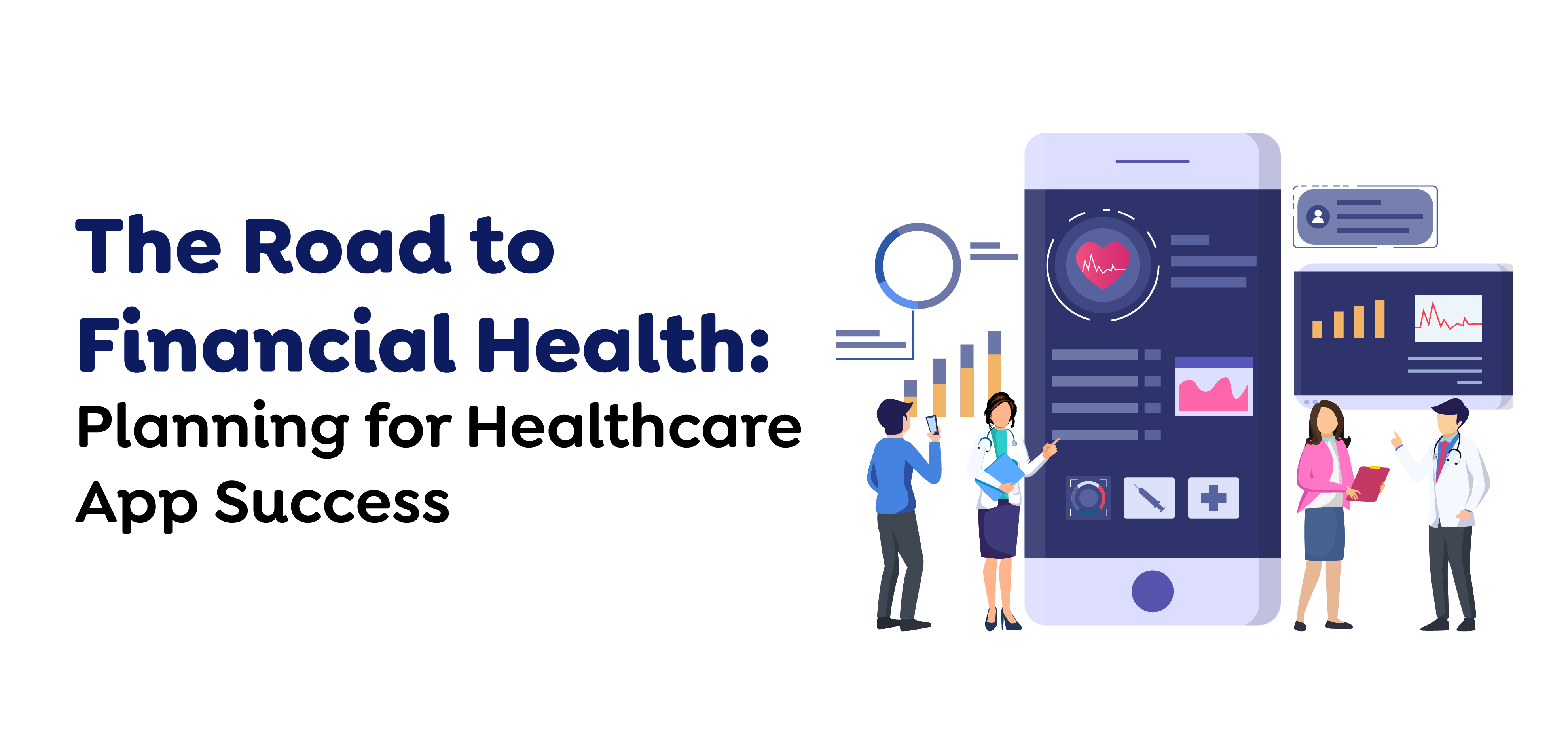
Developing a healthcare app is an investment in the future of healthcare delivery. However, it’s crucial to comprehend the various factors that contribute to the overall cost. Before delving deep into that section, ensure to rope in an experienced healthcare app development company.
The backbone of any app is its development and design. Skilled developers and designers are essential to create a user-friendly, secure, and functional healthcare app. The cost here can vary widely based on the complexity of the app’s features.
Healthcare apps often need to adhere to strict regulations to ensure data privacy and security. Compliance with standards such as HIPAA (Health Insurance Portability and Accountability Act) can add a layer of complexity and cost to the development process.
If your app requires integration with Electronic Health Records (EHR) systems or other medical databases, the cost can increase significantly. Interoperability with existing healthcare infrastructure is a critical consideration.
Ensuring a seamless user experience and conducting thorough testing are crucial steps in healthcare app development. These processes add to the cost but are essential for the app’s success and user satisfaction.
After launch, healthcare apps require ongoing maintenance, updates, and security patches. Budgeting for long-term support is necessary to keep the app relevant and secure.
The future of mHealth apps is a tantalizing realm of innovation and transformation, driven by technological advancements and evolving healthcare needs.
Artificial intelligence (AI) will play a central role in healthcare apps, providing virtual health assistants, predictive analytics, and personalized treatment recommendations.
AR technology will revolutionize medical education and training, offering immersive simulations and enhancing the skills of healthcare professionals.
The integration of healthcare apps with wearable devices will continue to grow, allowing for real-time health monitoring and interventions.
Also Read: Everything You Always Wanted To Know About Wearable Technology
Telehealth and remote patient monitoring will become more sophisticated, offering a wider range of services, from virtual surgery consultations to AI-driven diagnosis.
Mental health and wellness apps will expand to address the growing need for mental health support, with features like mood tracking and AI-driven therapy sessions.
As we conclude this journey into the world of healthcare apps, it’s clear that these digital tools have already begun reshaping the way we access and manage our health. The cost of development is an essential consideration, but the benefits they offer in terms of accessibility, convenience, and personalized care are truly transformative.
Looking ahead, the future of mHealth apps is boundless. With AI, AR, wearables, and telehealth leading the charge, healthcare is becoming more efficient, effective, and patient-centered than ever before. The possibilities are exciting, and as technology continues to advance, the healthcare industry will undoubtedly evolve alongside it.
So, whether you’re a healthcare professional, a tech enthusiast, or someone seeking to enhance their well-being, keep an eye on the ever-evolving world of healthcare apps – because the future of healthcare is in your hands, quite literally.
Partner with Techugo- a reliable mobile app development company in Noida to turn your dream into reality!
Write Us
sales@techugo.comOr fill this form